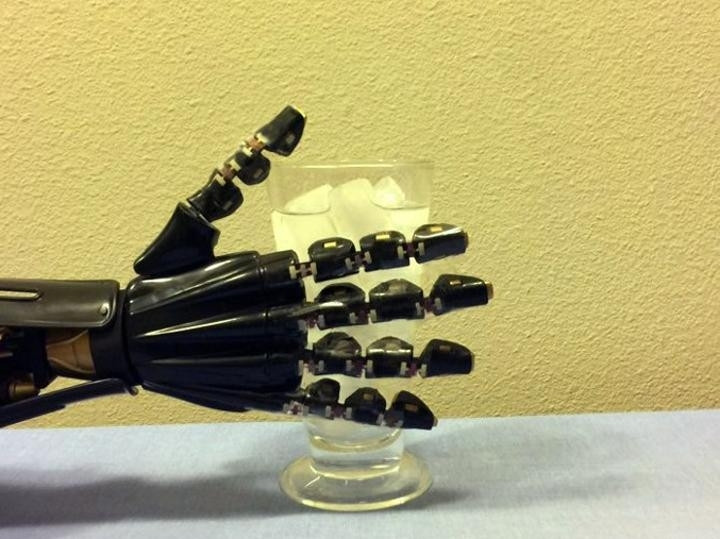Stretchable artificial 'skin' developed that gives robotic hand a sense of touch
Material is able to distinguish between hot and cold.

A team of researchers has created a stretchable artificial 'skin' that conducts electricity, allowing a robotic hand to 'feel', among other abilities.
According to the team from the University of Washington, the breakthrough development is the first to successfully incorporate semiconductors – materials which partially conduct electricity – into a stretchable component without any special workaround. This creates an artificial 'skin' which allows the electronics inside it to function while also having the ability to be stretched by around 50%.
Traditional semiconductors are usually brittle and, until now, it has been a challenging and expensive task to incorporate them into stretchable materials.
The research, detailed in the journal Science Advances, demonstrates how a robotic hand covered in the skin can sense the temperature of hot and cold water in a cup. It can also interpret signals sent to it from a computer, reproducing them as American Sign Language.
"The robotic skin can translate the gesture to readable letters that a person like me can understand and read," Yu said.
These abilities are promising as it means the material could be incorporated into prosthetics that communicate directly with a patient's mind, enabling lifelike sensitivity and limb control.
Using the material as an artificial skin is just one application though. Researchers hope a material that is soft, stretchable and also a semiconductor could have a huge range of uses in wearable electronics, health monitors, medical implants and interfaces, which would allow humans to communicate directly with machines.
The material was created by incorporating extremely thin wires around a thousand times thinner than a human hair – otherwise known as nanowires – into a stretchable rubber compound. While the rubber cannot conduct electricity, the nanowires inside act as conductors.
Their work documents how these stretchable electronics, which rely on readily available materials, could be scaled up for commercial production
"Our strategy has advantages for simple fabrication, scaleable manufacturing and low cost," Cunjiang Yu, lead author of the paper, said.
© Copyright IBTimes 2025. All rights reserved.





















